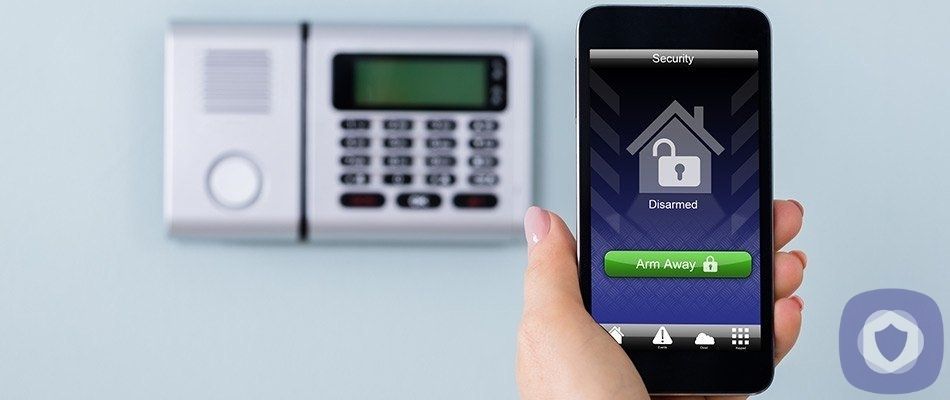Wireless security systems are all the rage among homeowners and renters alike, and for good reason. Wireless alarm systems offer flexible security at an affordable price and they’re usually fairly easy to install. But because the technology is fairly new, many people still have questions about wireless alarm reliability. Are wireless alarm systems as reliable as wired security systems? And do the users of these systems need to worry about things like hacking, power outages, and other threats? If you’re thinking about purchasing a wireless security system for your home or apartment, here’s what you need to know about the reliability of wireless security before you make your final choice.
Security benefits of wireless security systems
- No wires to cut. It’s possible for intruders to disarm an average wired security system by cutting the phone line to a home, but a wireless alarm system doesn’t carry that risk. Since the security components are not wired into the home’s electrical system, you don’t have to worry about them being cut, damaged by pests or rodents, or damaged due to bad weather.
- Continuous monitoring. Wireless security systems can be monitored via mobile app, text message alerts, and email alerts, making it easy to stay aware of what’s going on at your home, no matter where you are. Most wireless alarm systems also have a battery backup that allows the system to continue monitoring your home even during a power outage.
- Serialized technology. Each component of a wireless security system is serialized to work only with the designated control panel. Earlier model wireless security systems worked in a similar way to universal remote controls, relying on switch setting that were set by homeowners to communicate, but if someone else in your immediate vicinity had similar products, they could potentially have the same switch settings and your alarm could be triggered by someone else’s control pad. With serialized technology, each component of your security system is programmed into your control panel so the communication between your wireless devices and the control panel is secure and no outside devices can interfere.
- Continuous updates. Wireless security devices download firmware updates just like cell phones, which means that improvements are being made and potential bugs are being fixed all the time. You don’t have to worry about the system quickly becoming outdated, and these updates help make the system less vulnerable to security threats as the manufacturers become aware of each new threat.
- Fully Customizable. The benefit of wireless security is that the system is easy to build and easy to change. If you need to move, many wireless alarm systems can easily be removed and taken with you. If you want to add or get rid of sensors or cameras, those changes are easy to make. Many wireless systems can also be self-monitored or don’t require long term contracts. Wireless security systems offer endless flexibility, which means you will always have access to the exact kind of protection and monitoring you want for your home.
Cons of wireless security systems
- Network connectivity problems. If you have a reliable Internet connection, you shouldn’t have any connectivity issues with your wireless system. That said, wireless alarm systems are more prone to network outages. You’ll want to purchase a system that will work well with your unique living situation. For example, if you have frequent WiFi problems, you may need to purchase a wireless security system that uses Z-wave or a similar technology to communicate between the sensors, cameras, and control panel, rather than using a broadband system.
- Hacking. Any wireless system could potentially be vulnerable to hacking by a potential intruder accessing your network and jamming the system; however, it’s important to note that these types of malicious attacks are rare. Many wireless security systems are working to combat these issues via push notifications, encryption, and regular firmware updates. It’s also a good idea to create a network password that cannot be easily guessed and that you change regularly. For example - Ring cameras were targeted with hacking.
- Battery life. Wireless security systems run on batteries, which will need to be replaced from time to time. Devices such as surveillance cameras and sensors may run through batteries quickly. The good news is that the system will notify you when a battery is running low so you can fix the issue before it stops working.
When it comes to the reliability of wireless security systems versus wired security systems, there really is no need to stress. Wireless systems may work differently than wired alarm systems, but they are user-friendly, flexible and offer the reliable security most people are looking for. As long as you’re aware of potential issues and purchase a quality wireless security system, you can rest assured that your home or apartment is getting the highest standard of protection.
This article has been reviewed and approved by Officer Banta.

Officer Banta is the official SecurityNerd home security and safety expert. A member of the Biloxi Police Department for over 24 years, Officer Banta reviews all articles before lending his stamp of approval. Click here for more information on Officer Banta and the rest of our team.

